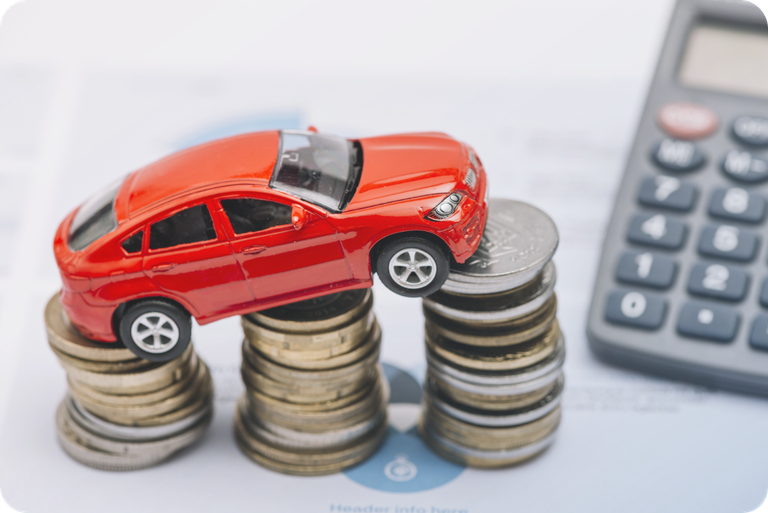
As a business owner, freelancer, or self-employed individual, every penny counts, especially when it comes to managing expenses. One of the most common ways to reduce your tax bill is by claiming mileage allowances for business-related travel. If you use your personal vehicle for work purposes, you may be entitled to claim tax relief on the miles you drive. Our Mileage Claim Calculator for 2024/25 is designed to help you estimate your potential savings and ensure you aren't leaving money on the table.
Why You Should Track Your Mileage for Business
Keeping track of your business mileage is crucial for several reasons. Whether you're self-employed, a contractor, or even a sole trader, the UK government allows you to claim a specific rate per mile driven for work purposes. This can significantly reduce your taxable income, effectively lowering your tax bill. In 2024/25, HMRC has set mileage rates for cars, vans, motorcycles, and bicycles that you can use to claim relief.
By using Mileage Calculator, you'll easily figure out how much you can claim, ensuring you stay compliant with HMRC and maximise your allowable expenses.
HMRC Mileage Rates 2024/25:
- Cars and Vans: 45p per mile for the first 10,000 miles, 25p thereafter
- Motorcycles: 24p per mile
- Bicycles: 20p per mile
How to Use Mileage Claim Calculator
Our Mileage Claim Calculator 2024/25 is designed for simplicity and accuracy. You don't need to be a tax expert to understand how it works.
- Select your vehicle type: The calculator adjusts the rate depending on the type of vehicle you use --- car, van, motorcycle, or bicycle.
- Input your total mileage: Whether you're driving a car, riding a motorcycle, or cycling, simply enter the number of miles you've covered for business purposes.
- Automated Calculation: After the above selection, you'll see an estimate of how much you can claim as business expenses for your mileage.
Example Calculation:
Imagine you're a self-employed consultant who drives 12,000 miles a year for client meetings. Here's how the calculation breaks down using HMRC rates:
- First 10,000 miles at 45p = £4,500
- Remaining 2,000 miles at 25p = £500
Total Claimable Amount: £5,000
By simply recording and claiming your mileage, you can save a significant amount on your tax bill.
Who Can Use the Mileage Allowance Calculator?
Mileage Claim Calculator is perfect for a wide range of professionals and business owners who use personal vehicles for work purposes. Here are just a few examples:
- Freelancers: Driving to meet clients or attend events? You can claim mileage.
- Self-Employed Contractors: If you travel between job sites or meetings, you can reduce your taxable income.
- Employees: Even if you're reimbursed by your employer, mileage claims can still be a factor in your tax return.
- Sole Traders: Save on your business-related travel costs by using the correct mileage rates.
Calculate your mileage allowance now at,
Understanding Mileage Allowance Relief for Employees
Being employee, when you claim mileage for business purposes, you can also apply for Mileage Allowance Relief (MAR). This relief is designed to cover any difference between what your employer pays you and the HMRC-approved mileage rates. If your employer reimburses you less than the 45p per mile (for cars and vans), you can claim the difference as part of your Mileage Allowance Relief.
For example, if your employer reimburses you 35p per mile and you drive 8,000 miles in a year, you can claim an additional 10p per mile, which totals £800. These savings can add up and make a big difference to your tax return.
What You'll Need to Claim Mileage
To claim your mileage relief accurately, you'll need to maintain a record of:
- The date of travel: When the journey was undertaken
- Purpose of the journey: Document the business reason for the trip
- Miles driven: Keep an accurate log of the mileage covered
- Vehicle type: Ensure you're claiming the correct rate based on your vehicle
Many business owners use apps or spreadsheets to track this information, but our Mileage Claim Calculator can streamline the process even further by providing a clear, easy-to-use interface for quick calculations.
Benefits of Using a Mileage Calculator
- Maximise Tax Savings: Calculate exactly what you're entitled to without missing out on relief.
- Save Time: No need to do complex calculations --- our calculator does it for you in seconds.
- Avoid Mistakes: Input your mileage and vehicle type, and the calculator ensures you're using the right HMRC rates.
- Multiple Vehicle Options: Whether you use a car, van, motorcycle, or bicycle for business travel, the calculator allows you to select the relevant vehicle type and calculate accordingly.
- Stay HMRC Compliant: Avoid under or over-claiming mileage, ensuring you meet HMRC's requirements.
Understanding how to claim business mileage can save you thousands over time. Whether you're self-employed, a contractor, or a small business owner, the key is to ensure you're accurately logging your mileage and using the right HMRC rates for 2024/25. Our Mileage Allowance Calculator makes it easy to get an accurate estimate of your tax savings, helping you keep more of your hard-earned money.
If you're unsure about the best way to claim mileage allowance or need assistance with your tax returns, hiring a knowledgeable sole trader accountant can save you time and ensure you're receiving the full tax relief you're entitled to. Not only will this save you time, but it will also help you avoid costly mistakes, giving you peace of mind when tax season rolls around.
Posted Using InLeo Alpha
It's a shame HMRC haven't increased the mileage rate since 2011. During that time, the cost of motoring has increased significantly.
Not so much due to fuel prices (although they have gone up), but due to taxation, insurance prices, and the cost of tyres and servicing (according to Epyx, who manage fleets totalling 4 million vehicles, car parts prices have increased by 35% in the last 4 years alone).